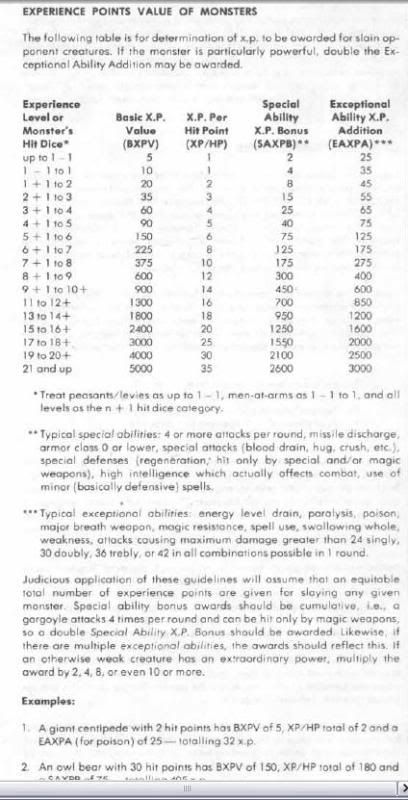Wow. Way to be dismissive of lots of great design work done by dozens of people, dude.
Wow. Way to assume bad faith, dude.
Yes, I'm considering Pathfinder a branch of D&D. For a game that marketed itself under the tagline "3.5 lives Thrives" I do not think that this is remotely unfair. And the OSR is a part of D&D - even sometimes explicitly called Old-School Retroclones. Almost all the OSR starts with two approaches - either trying to keep the game and change the methods, or building on the game.
Yes, they are all a part of D&D.
Flag on the play. Abuse of a term with a precise mathematical meaning to describe a very imprecise characteristic.
Overturned by the TV replay. Use of a term with a precise mathematical meaning to describe something in many cases explicitly set out by the game designers to follow that mathematical progression.
If you actually look even at a superficial level at the CR system in 3.0, 3.5, or Pathfinder, three things are blatantly obvious. The first is that the challenges a character is expected to face are tied to their level. The second is that the
In short according to all of 3.0, 3.5, and Pathfinder, character power doubles every two levels. Just in case you aren't aware, that is an exponential relationship.
Doing the same for 4e we find that character power to handle an encounter is expected to double every four levels. Again this is an exponential relationship. And that a relevant measure of a character's power is their expected ability to tackle problems.
Older editions of D&D are not so obvious about this relationship because Gygax was either better or worse about obfuscating his game mechanics (depending on your value judgements; there's a case either way) and also because classic D&D has a level soft-cap and an endgame at around level 10 after which the nature of the game changes. And because the XP chart changes over time, starting out exponential but changing in a different way for each class.
We can also look at the power of monsters by hit dice. And here we're going by Gygax and the 1E DMG. Allowing for rounding the XP value of a monster doubles with each increase in hit dice - an exponential relationship - from 0hd to 3hd. From 3hd to 111hd it approximately multiplies by 1.5 with each hit dice. And after that point we're into the endgame. Why there are two exponential relationships there is I suspect due to a mix of playtesting and the flattening out of the PC experience point chart.
And further given that Gygax is talking about equitable numbers of experience points, we can show that the relationship between numbers of monsters and extra monster power is about what would be expected.
We cannot even clearly define what "power" across games is, much less show that it grows exponentially with some useful variable (as opposed to growing linearly, or with some other pattern), and compare it in various games.
We can however show that in D&D power to handle the expected challenges does grow exponentially with level and this is part of the design intent. We can show that in almost any other level based game,
even fantasy heartbreakers, we don't get this exponential curve based on levels and that in most non-level based games you don't expect to see such power growth over the course of a campaign. And indeed in most RPGs without challenge-based XP awards you may get increasingly powerful abilities (as with the higher level disciplines in Vampire: the Masquerade) but the cost increases for those higher level rewards, while the amount of XP you earn over time remains flat based on a per-session award.




